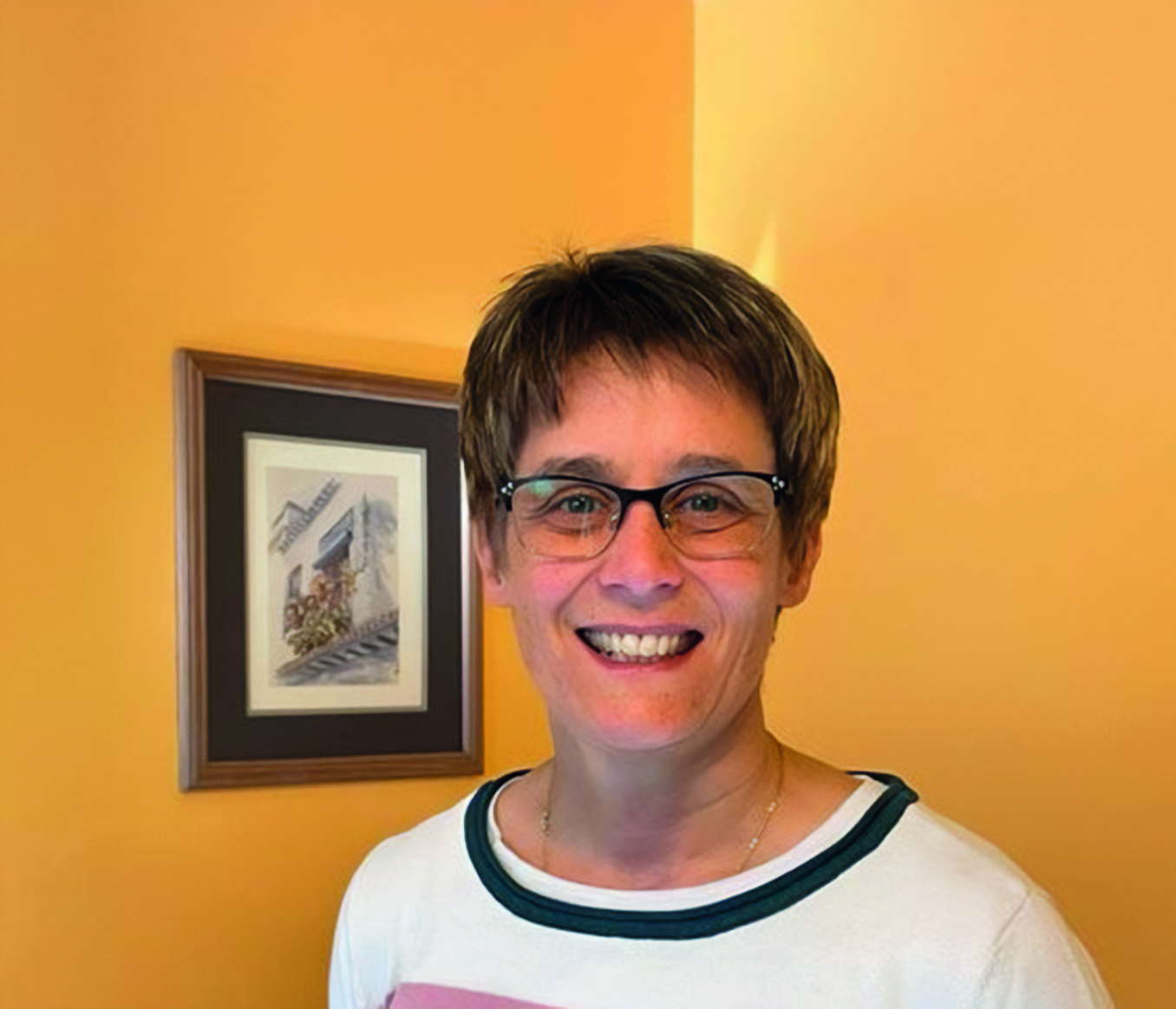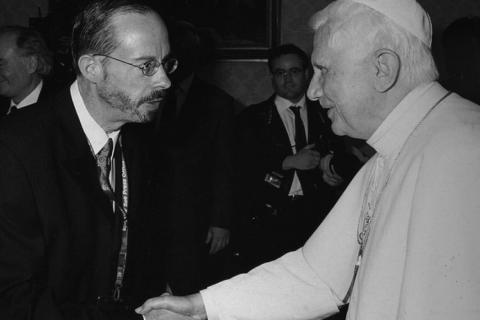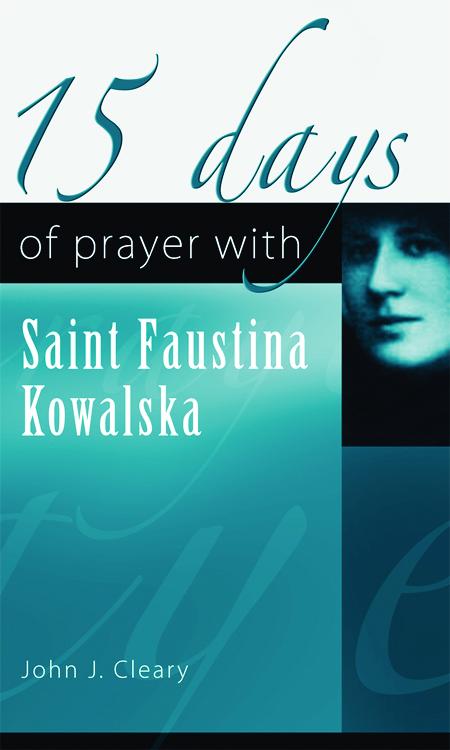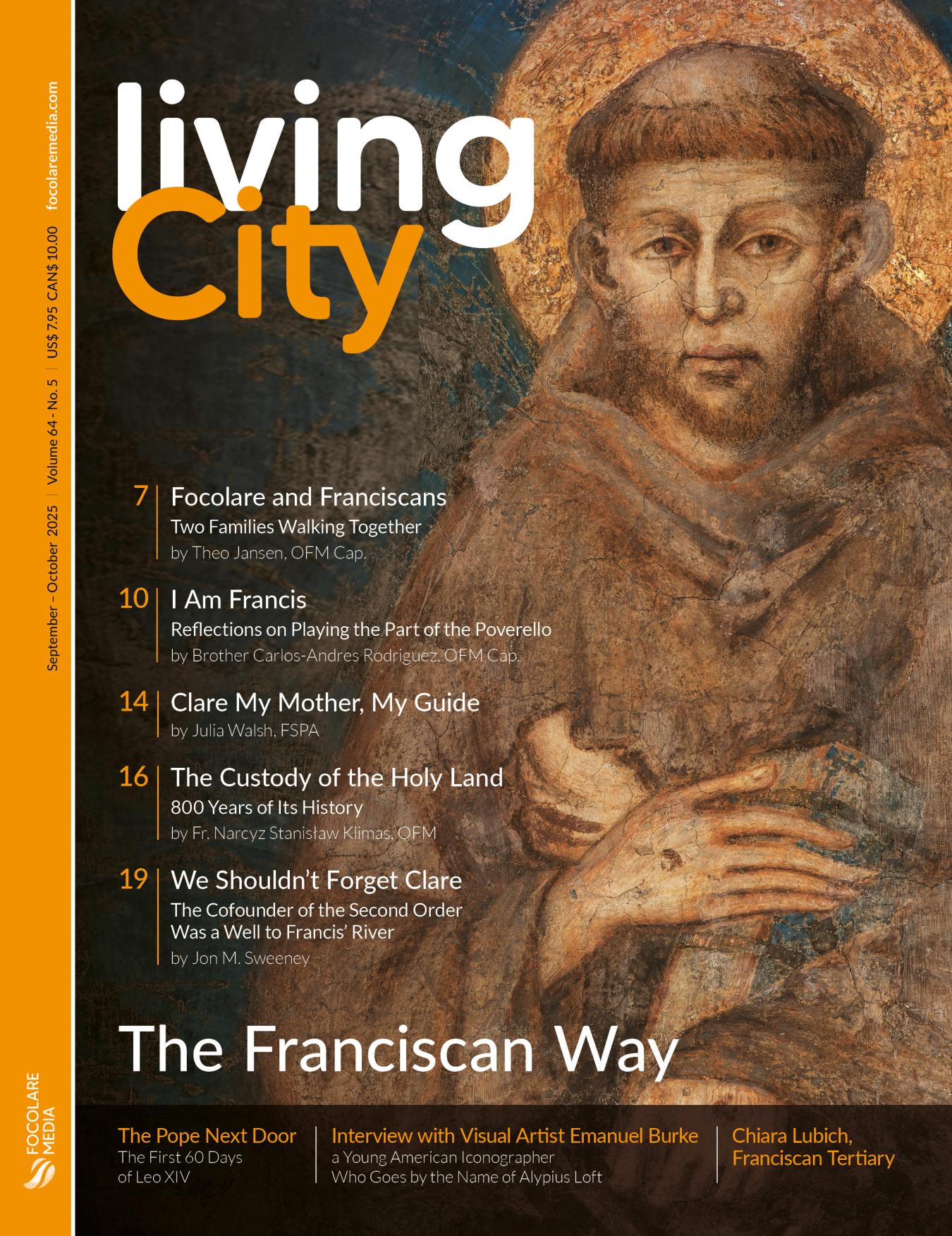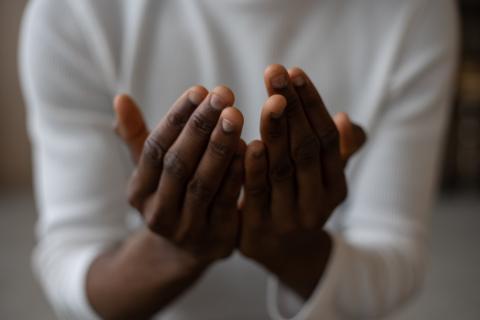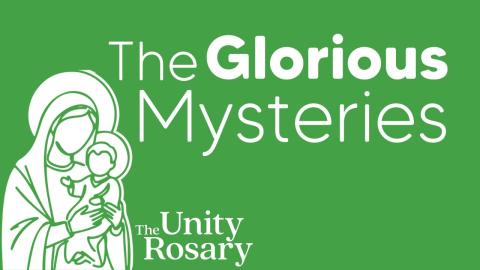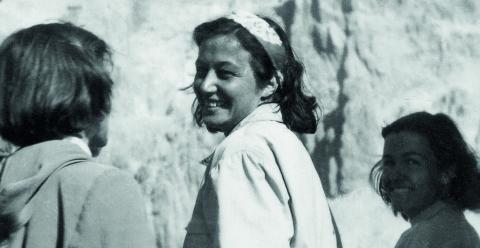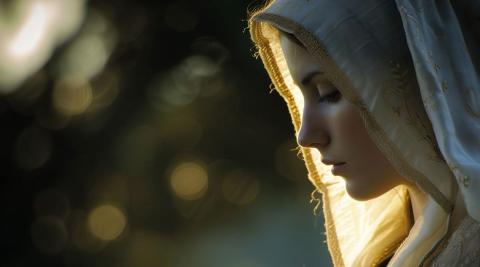
Illustration by nadia_bormotova - IStockphoto.com
Growing up in a family of the Focolare Movement, I learned about its principles and values ever since I was a little child. From a very young age I was taught that Jesus was present in each person and that I needed to love God in my neighbor.
The spirituality of unity was the air that I breathed and the life we shared in my family. Being a Christian and being part of the Focolare were one and the same. As a young adult I felt called to give all of my life to God as a focolarina and to live for Jesus’ dream “that all may be one” (Jn 17:21).
Looking back on my life 20 years later, I can see the many fruits the Focolare spirituality of unity has brought for my family and my own personal journey. Even though not everyone in my family actively participates in the Focolare, we have developed a very solid foundation in our relationships, and there is a generosity in our love for one another that has carried us through various crises and difficult moments.
Personally, the life in the Focolare has allowed me to meet many wonderful people of different cultures and walks of life, which has enriched my own life and helped me grow as a person, a Christian and in my calling as a focolarina.
Getting in touch with my feelings
But as on every life journey, there are also shadows underneath the light. It has taken me a long time to acknowledge, understand and recognize them.
About 10 years ago, I began to feel that something was out of balance in my life. I found myself with a very negative and defensive attitude and started to develop physical symptoms of anxiety and exhaustion. Besides taking care of the physical aspects, I had to get to the bottom of the psychological part of it as well—to understand better the roots that had led me to this situation.
Several years of counseling and spiritual direction have helped me to understand that growing up with the Focolare spirituality has led to an imbalance inside of me, and it was taking its toll on my body.
I realized that focusing exclusively on loving my neighbor and trying to build the “exterior castle” with Jesus among us had led me to neglect my own inner spiritual and emotional life. I was out of touch with my feelings and personal needs and had gotten accustomed to using spiritual concepts to cover my human fragilities. This way, nobody would see them—including myself. I felt like a shiny balloon with nothing inside—and now I was deflated.
Little by little I came to realize that I had never learned to trust in God’s love for me and therefore was unable to hear and follow the voice of my own conscience. I had delegated this responsibility to others—my parents, my youth leaders and finally the person of authority in our Focolare communities.
At that time, nobody was prepared to notice those deviations of the understanding of unity or knew what to do with it. But now was the time for me to build stronger spiritual muscles, understand myself better, deepen my personal inner life and my relationship with God.
I had to learn how to be more in touch with what was going on inside of me and then, little by little, discover new ways of being in relationship with others that safeguarded my autonomy and personal boundaries. Even though it was not easy, today I am very grateful for this journey that has led me to a greater inner freedom and a deeper relationship with God.
Different roles: governance and spiritual accompaniment
A few years ago, I had the opportunity to attend a certificate program in spiritual direction. Going through this course was a life-changing experience that helped me integrate my vocation as a focolarina with other elements of human and spiritual formation, giving me the tools I needed to live the spirituality of unity in a more balanced way.
Besides the spiritual growth I also understood the importance of putting in place boundaries that protect another person’s inner space. The Guidelines for Ethical Conduct published by Spiritual Directors International (SDI) have very clear requirements that help recognize “the imbalance of power in the spiritual direction relationship and take care not to exploit it.”1
I realized that within the Focolare Movement, we have not always been aware of such boundaries, since often the person in authority also has the function of a spiritual guide. In recent years, Pope Francis and the Dicastery for Laity, Family and Life have urged the Focolare and other ecclesial movements to assure a distinction between the roles of spiritual accompaniment and governance.
When addressing the members of the Focolare Movement’s General Assembly on February 6, 2021, Pope Francis explained that it was the responsibility of those who hold positions of governance to face organizational crises in the best, most constructive way.
On the other hand, “spiritual crises of individuals, which involve the intimacy of the person and the sphere of conscience, must be dealt with prudently by those who do not hold positions of governance within the movement.”
The inner and outer forum
This distinction of roles is known in the Catholic Church as the distinction between the inner and outer forum of a person’s spiritual life. The two terms have their origin in Catholic canon law and distinguish levels and competencies in the exercise of governing power.
The roles are strictly separated, for example, in seminary education, where the seminary rector is responsible for the external life of the seminarian and addresses only visible, observable behaviors, while the spiritual director is at the disposal of the seminarian for personal talks that are subject to the absolute obligation of confidentiality.
As I understood these concepts more deeply, I realized that part of my own confusion and the imbalance I found myself in were caused by a weak inner forum. I had never learned to trust the voice of my conscience, instead relying on the person in authority to affirm or express “God’s will” for me.
We know today that the lack of distinction of roles between the inner and outer forum can easily lead to various forms of manipulation and abuse.
On September 10, 2020, Focolare Co-President Jesús Morán addressed the General Council and the delegates of the movement with a communication on abuse in the Work of Mary studied during 2014–2020. In his address he openly admitted that “among us, too, there has been abuse and the covering up of abuse. Our own experience of addressing different types of abuse in recent years demonstrates this clearly, and we must admit it.”
He continued to explain that at the root of these abuses are an “immature, fragile, often confusing interweaving of relationships” that are often further accentuated “by inappropriate and reductive interpretations of the charism.”
Morán states clearly that “every form of abuse—whether sexual, of authority, of power, or spiritual—is a grave deviation from the charism and has nothing to do with Chiara Lubich’s ‘ideal,’ despite at times being committed in the name of unity, obviously perceived in the wrong way.”
He affirms that the distinction between the realms of governance and of conscience recommended by the Church authorities needed to be seriously reflected upon, in the spirit of twofold fidelity to both the Church and the charism.
Structural changes are needed
We—the Focolare Movement—have a long way ahead of us to make the necessary changes in our structures, levels of governance and decision-making procedures. But it’s the only way to prevent harmful deviations of the spirituality of unity that can be damaging to people’s lives.
In his Letter to the People of God on August 20, 2018, Pope Francis quotes St. Paul with these words: “If one member suffers, all suffer together with it” (1 Cor 12:26). The sexual abuse crisis in the Church and ecclesial institutions affects all of us, and we need to face this painful moment and stand together with those who have suffered abuses of different forms.
My own journey has led me to a greater awareness of the damage that we can do to one another by not being aware of the power and influence we may have over others, whether intentional or unintentional.
The last few years have allowed me to embrace and accept my own limitations and fragilities. They have made me aware that we all have a part to play in creating safer environments where the dignity of each person is not only respected, but able to flourish. Cultivating my own inner life, learning how to set appropriate boundaries and building my own structures of accountability is a responsibility I have in this process.
My hope and prayer are that together we can create safe spaces where it is possible to lovingly express our pains and find support and healing.


